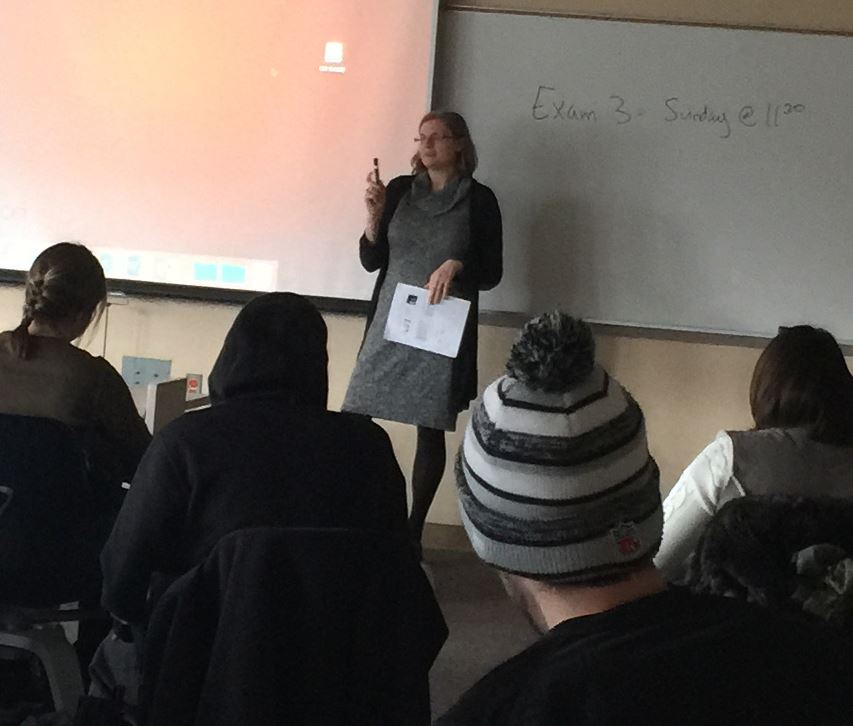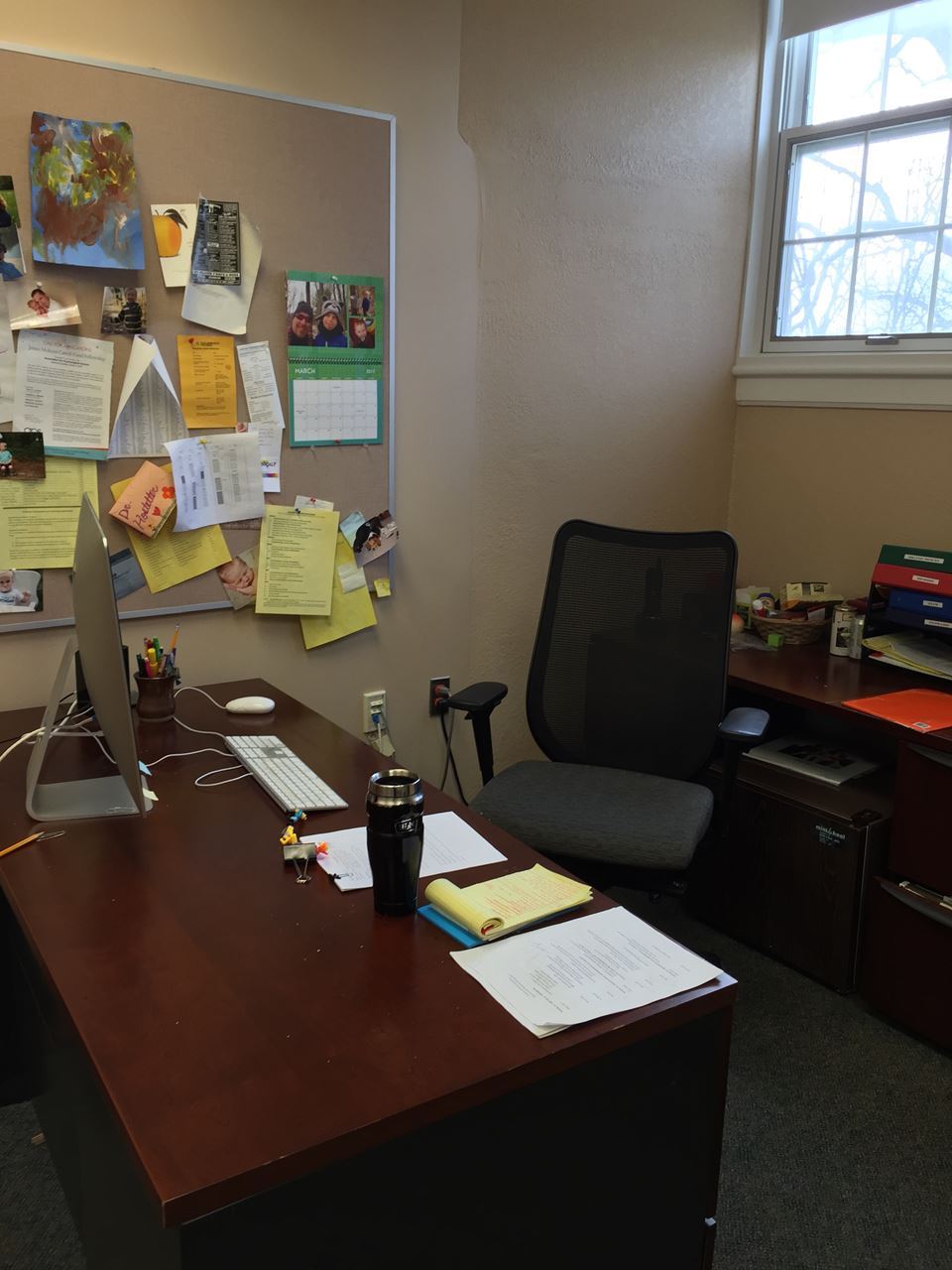 School name: Kalamazoo College
School name: Kalamazoo College
Type of college/university: Small liberal arts school
School locale: City
Classes you teach: Cognitive Psychology, Experimental Research Methods, Language and Mind
Average class size: 25
What’s the best advice about teaching you’ve ever received?
Teach what you’re interested in. Students will not remember most of what you teach anyway, but they will remember whether you were passionate about the topic or not, and with any luck, that passion will rub off on them a little.
What book or article has shaped your work as a psychology teacher?
No specific book or article, but my training as a Cognitive Psychologist definitely influences my teaching. It would be hard to spend so much time thinking about how people learn and remember without letting that affect my choices in the classroom!
Briefly tell us about your favorite lecture topic or course to teach.
I love teaching about the Psychology of Language. This was the topic that originally got me interested in Psychology, and I still enjoy it all these years later. These days, I especially enjoy teaching about language acquisition because I can incorporate so many examples of my two young children’s developing language.
What teaching or learning techniques work best for you? Briefly describe a favorite assignment or in-class activity.
Most of my classes involve short bouts of lecture interspersed with opportunities for students to engage with the material. For example, in my Cognitive Psychology class, I spend 15 minutes explaining Hockett’s six design features of language. Then I give students a handout describing three animal communication systems, and in small groups, they spend 15 minutes talking through the extent to which each communication system has each of the six features I just told them about. I like this approach because it breaks up class time and encourages active learning, while also giving students practice retrieving and applying what we are learning.

What’s your workspace like?
Messier than I would like! No matter how often I straighten up, the chaos has a way of creeping back in.
What is your teaching philosophy in 8 words or fewer?
Emphasize not just what, but how and why.
Tell us about a teaching disaster (or embarrassment) you’ve had and how you dealt with the situation.
On the first day of my Cognitive Psychology class several years ago, I went into the classroom where it is always held and began my first day spiel. The students all looked particularly wide-eyed and fearful. Finally, one student raised her hand and said “um, I think this is supposed to be Intro to Psychology.” Indeed, I was in the wrong classroom! Now, I am always sure to double check where my class is scheduled before the first meeting and ask the students if I’m in the right place before I begin!
What is something your students would be surprised to learn about you?
I enjoy writing children’s books. I have created several books for my kids, including “Riding on a Rhinoceros”, “Geoffrey the Giraffe Goes for a Walk” and “A Day with the Dinosaurs.”
What are you currently reading for pleasure?
I just finished reading Michael Lewis’s “The Undoing Project: A Friendship that Changed our Minds” about the Cognitive Psychologists Daniel Kahneman and Amos Tversky. It was the perfect blend of reading for work and pleasure, as it gave me a new perspective on the history of these two influential figures who I teach about in my courses, but I also really enjoyed the story of their lives and friendship.
What tech tool could you not live without?
Definitely my iphone!
What’s your hallway chatter like? What do you talk to colleagues about most (whether or not it is related to teaching/school)?
We have several young moms in our department, so there is lots of parenting chatter. We also talk about things going on in our classes, and news stories that are related to Psychology.
